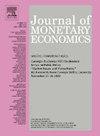全民基本收入计划的宏观经济效应
IF 4.3
2区 经济学
Q1 BUSINESS, FINANCE
引用次数: 0
摘要
我建立了一个异质代理人世代重叠模型,以评估用全民医保政策取代美国收入保障制度的福利效应。我研究了两个反事实案例:一个是支出中性的改革,另一个是以政策为导向的大规模 UBI 改革,每月转移支付相当于 1000 美元,两者都由消费税的变化提供资金。第一种改革对财政的影响不大,能增加总产出和就业,减少收入和财富的不平等。第二种做法需要大幅提高消费税率,减少就业和产出,加剧收入不平等,财富不平等则呈横向发展。在这两种情况下,可支配收入和消费的分配更加平等,顶层累积的收入减少。这两种经济都产生了正的福利收益,而慷慨的 UBI 经济的福利收益更大。本文章由计算机程序翻译,如有差异,请以英文原文为准。
The macroeconomic effects of universal basic income programs
I develop a heterogeneous agents overlapping generations model to assess the welfare effects of substituting the US income security system with a UBI policy. I study two counterfactual exercises: an expenditure-neutral reform and a large, policy-oriented UBI reform with a transfer equivalent to $1000 monthly, both financed by changes in the consumption tax. The first exercise has a moderate fiscal impact, induces increases in the aggregate output and employment, and reduces earnings and wealth inequality. The second exercise requires a large increase in the consumption tax rate, decreases employment and output, and increases earnings inequality, which moves sideways for wealth. In both cases, disposable income and consumption are more equally distributed, with less accrual at the top. The two economies generate positive welfare gains, with those for the generous UBI economy being larger.
求助全文
通过发布文献求助,成功后即可免费获取论文全文。
去求助
来源期刊

Journal of Monetary Economics
Multiple-
CiteScore
7.20
自引率
4.90%
发文量
90
审稿时长
74 days
期刊介绍:
The profession has witnessed over the past twenty years a remarkable expansion of research activities bearing on problems in the broader field of monetary economics. The strong interest in monetary analysis has been increasingly matched in recent years by the growing attention to the working and structure of financial institutions. The role of various institutional arrangements, the consequences of specific changes in banking structure and the welfare aspects of structural policies have attracted an increasing interest in the profession. There has also been a growing attention to the operation of credit markets and to various aspects in the behavior of rates of return on assets. The Journal of Monetary Economics provides a specialized forum for the publication of this research.
 求助内容:
求助内容: 应助结果提醒方式:
应助结果提醒方式:


